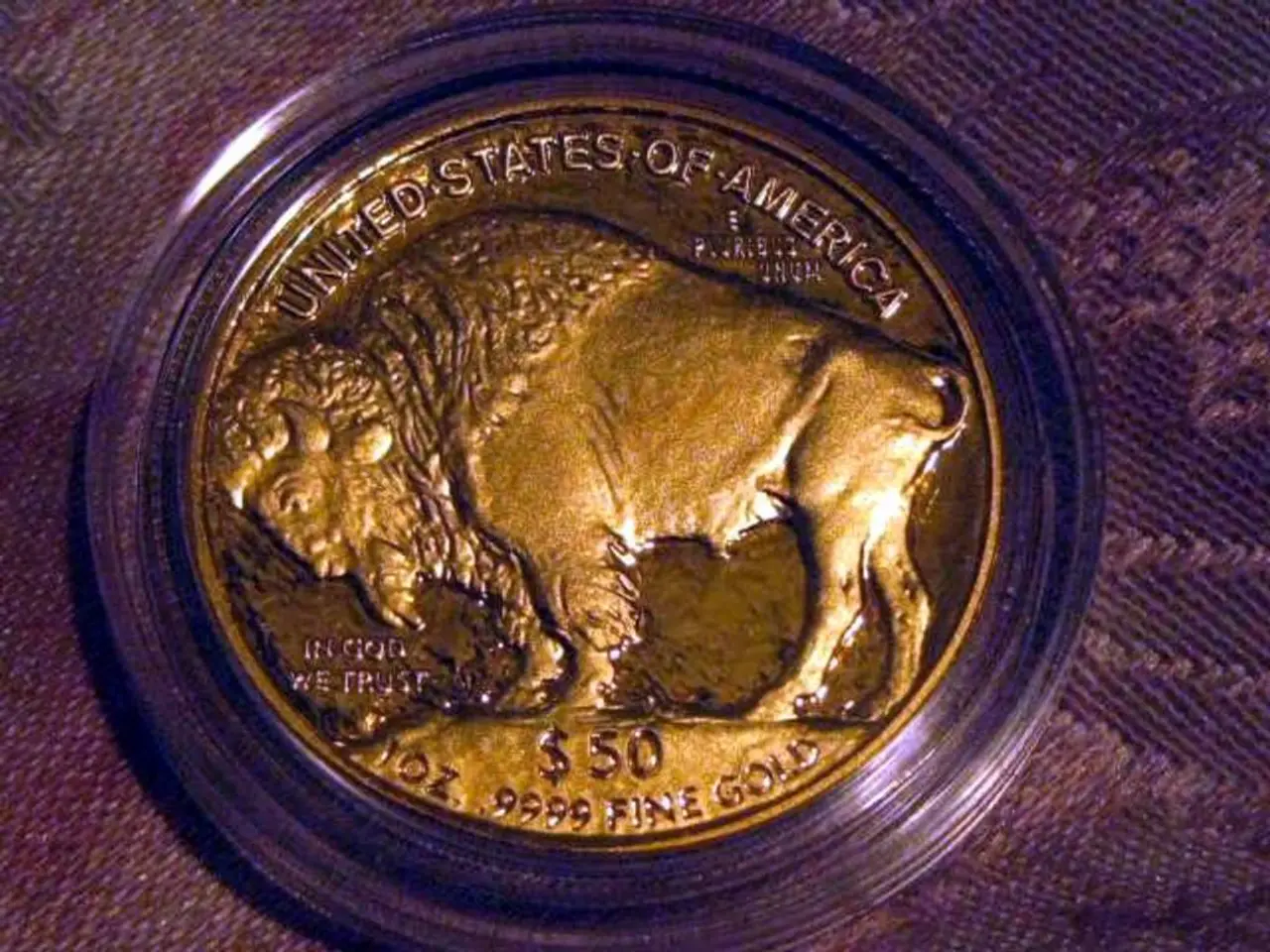Digital asset managers strongly oppose the adoption of digital assets
In recent discussions, Max Castelli and Nat Benjamin have been exploring the global reserve response post-Liberation Day and the considerations for a steady-state liquidity environment. The conversations revolve around the future of the U.S. dollar, an issue that has been under scrutiny due to its dominance being questioned by some.
Massimiliano Castelli, head of strategy and advice at UBS Asset Management, believes that reports of the dollar's demise are exaggerated. He suggests that while the administration's actions may erode its dominance, the dollar is not going away soon. This sentiment is echoed by Geoffrey Yu, senior EMEA markets strategist at BNY, who states that the US will likely continue to hold the default currency status, and other currencies will need to earn their higher status.
However, the search for a credible replacement for the dollar in cross-border transactions has proven challenging. The euro, the second-largest reserve currency, holds around 20% of global foreign exchange reserves. While it benefits from the European Union's large economic size, strong exports, and a robust central bank, the lack of a unified fiscal policy, treasury, and common bond market restricts its attractiveness compared to the dollar.
The Chinese yuan has been growing as a reserve currency but remains constrained by capital controls, limited financial market depth, and lower transparency, making it less appealing as a global safe asset. The BRICS countries have discussed a shared currency to reduce reliance on the dollar, but structural weaknesses—such as underdeveloped central banks and monetary policies—make this idea largely infeasible at present.
Multipolar or multi-reserve currency systems, where several currencies share the reserve role, are theoretically possible but historically disfavored due to increased transaction costs, confusion during crises, and greater exchange rate risks. Cryptocurrencies, despite their growing popularity, are currently too volatile and lack sovereign backing to serve as a credible reserve currency.
Europe is focusing on developing its own safe asset, and Japan is seen as having an opportunity to move closer to the limelight as de-dollarisation accelerates. But, as Jens Søndergaard, currency analyst at Capital Group, suggests, a weaker dollar amid US policy volatility is creating opportunities for other currencies, but there is no real alternative yet.
Harold James writes that countries may turn to gold as a weapon of war in today's environment, while Herbert Poenisch, senior research fellow at Zhejiang University, suggests that cryptocurrencies may accelerate geopolitical shifts. Aaron Hurd, senior portfolio manager at State Street Investment Management, asserts that lower returns and higher risk mark a change in dynamics for the US currency.
In conclusion, alternatives to the U.S. dollar as a global reserve currency exist, but each faces significant challenges. Any meaningful shift away from the dollar would cause geopolitical rebalancing and possibly increased financial volatility as the global system adjusts to new currency dynamics. The future of the global reserve system is uncertain, but one thing is clear: the implications of any shift are far-reaching and will have significant impacts on the global economy.
[1] OMFIF's Global Public Investor series explores the investment strategies of central bank reserve managers, public pension funds, and sovereign funds across the world. [2] Over the past year, 160 global public investors with over $24tn in total assets have engaged with OMFIF's market-leading reports and events in this series. [3] Alberto Torres, Sunil Kaushik, Natalie Tsui, and Tobias Cheung write that the role of gold is changing. [4] OMFIF's Global Public Investor 2025 found that no central bank surveyed holds any digital assets, and 93% have no intention of doing so. [5] Discussions about de-dollarisation fall short when it comes to finding a credible replacement for the dollar in cross-border transactions.
- Max Castelli and Nat Benjamin have been discussing the global reserve response post-Liberation Day, focusing on a steady-state liquidity environment, particularly the future of the U.S. dollar.
- Castelli believes that the dominance of the dollar is being questioned but anticipates that it will not disappear soon, a sentiment echoed by Geoffrey Yu.
- The euro, despite benefits from the EU's large economy, strong exports, and a robust central bank, faces restrictions due to the lack of a unified fiscal policy.
- The Chinese yuan is growing but limited by capital controls, financial market depth, and lower transparency, making it less appealing as a global safe asset.
- The BRICS countries have proposed a shared currency, but their structural weaknesses make this idea infeasible at present.
- Multipolar or multi-reserve currency systems are possible but historically disfavored due to increased transaction costs, crisis confusion, and greater exchange rate risks.
- Cryptocurrencies are too volatile and lack sovereign backing to serve as a credible reserve currency, but countries may consider gold as a weapon of war or cryptocurrencies to accelerate geopolitical shifts.
- OMFIF's Global Public Investor series explores investment strategies of central bank reserve managers, finding that no central bank holds digital assets, and 93% have no intention of doing so. Discussions about de-dollarisation face challenges in finding a credible replacement for the dollar in cross-border transactions.




